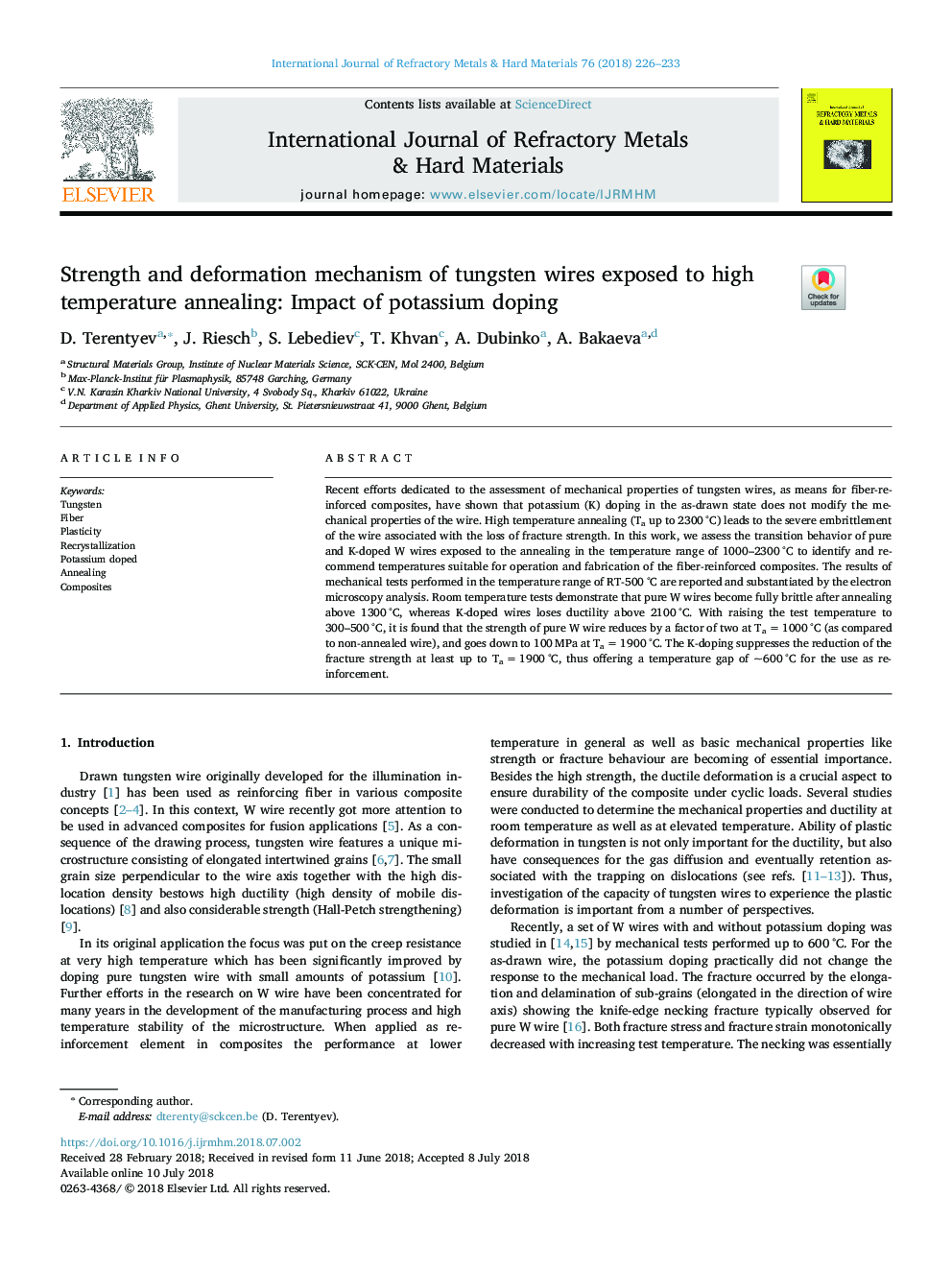| Article ID | Journal | Published Year | Pages | File Type |
|---|---|---|---|---|
| 7989521 | International Journal of Refractory Metals and Hard Materials | 2018 | 8 Pages |
Abstract
Recent efforts dedicated to the assessment of mechanical properties of tungsten wires, as means for fiber-reinforced composites, have shown that potassium (K) doping in the as-drawn state does not modify the mechanical properties of the wire. High temperature annealing (Ta up to 2300â¯Â°C) leads to the severe embrittlement of the wire associated with the loss of fracture strength. In this work, we assess the transition behavior of pure and K-doped W wires exposed to the annealing in the temperature range of 1000-2300â¯Â°C to identify and recommend temperatures suitable for operation and fabrication of the fiber-reinforced composites. The results of mechanical tests performed in the temperature range of RT-500â¯Â°C are reported and substantiated by the electron microscopy analysis. Room temperature tests demonstrate that pure W wires become fully brittle after annealing above 1300â¯Â°C, whereas K-doped wires loses ductility above 2100â¯Â°C. With raising the test temperature to 300-500â¯Â°C, it is found that the strength of pure W wire reduces by a factor of two at Taâ¯=â¯1000â¯Â°C (as compared to non-annealed wire), and goes down to 100â¯MPa at Taâ¯=â¯1900â¯Â°C. The K-doping suppresses the reduction of the fracture strength at least up to Taâ¯=â¯1900â¯Â°C, thus offering a temperature gap of ~600â¯Â°C for the use as reinforcement.
Related Topics
Physical Sciences and Engineering
Materials Science
Metals and Alloys
Authors
D. Terentyev, J. Riesch, S. Lebediev, T. Khvan, A. Dubinko, A. Bakaeva,
